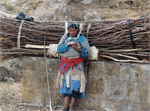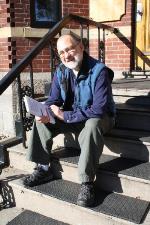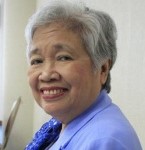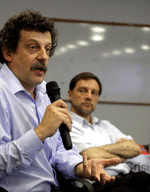Echoes in the press
Published on Mon, 2015-03-23 00:00
When the World Economic Forum (WEF) met last January in Switzerland, attended mostly by the rich and the super-rich, the London-based charity Oxfam unveiled a report with an alarming statistic: if current trends continue, the world’s richest one percent would own more than 50 percent of the world’s wealth by 2016. And just 80 of the world’s richest will control as much wealth as 3.5 billion people: half the world’s population. The post-2015 development agenda will only succeed if the SDGs include meaningful and time-bound targets and commitments for the rich that trigger the necessary regulatory and fiscal policy changes. |
Published on Tue, 2015-03-17 14:02
Nigel Martin has spent 45 years trying to turn governments' ears toward civil society voices. In 1998, he founded FIM: the Forum for Democratic Global Governance, an international NGO based in Montreal. FIM both convenes activists from around the world with particular attention to those from the global south and from Muslim sectors, and it has worked to create openings for civil society actors in global governance fora such as the UN, G8, G20, and more recently BRICS (Brazil, Russia, India, China and South Africa) and the OIC (Organization of Islamic Cooperation). |
Published on Tue, 2015-01-27 10:40
An overwhelming majority of citizens in the 28-member European Union (EU) – which has been hamstrung by a spreading economic recession, a fall in oil prices and a decline of its common currency, the Euro – has expressed strong support for development cooperation and increased aid to developing nations. A new Eurobarometer survey to mark the beginning of the ‘European Year for Development,’released Monday, shows a significant increase in the number of people in favour of increasing international development aid. The survey reveals that most Europeans continue to “feel very positively about development and cooperation”. Additionally, the survey also indicates that 67 percent of respondents across Europe think development aid should be increased – a higher percentage than in recent years, despite the current economic situation in Europe. |
| Source: . Published on Wed, 2015-01-14 23:00 |
| Source: . Published on Mon, 2015-01-12 23:00 |
Published on Sun, 2014-11-30 17:32
The budget watchdog Social Watch Philippines on Friday criticized the Senate for retaining the new definition of savings in the 2015 budget that it approved, and the possibility of funding for an expense item being declared as savings at any time of the year. "Such a redefinition can perpetuate the pork barrel system and mechanisms similar to the Disbursement Acceleration Program, both of which have been declared unconstitutional by the Supreme Court," the group said in a statement. |
| Source: . Published on Fri, 2014-10-03 00:00 |
Published on Thu, 2014-10-02 19:23
Roberto Bissio is the coordinator of Social Watch, an international network of citizens’ organisations reporting on how governments and international organisations implement their commitments on poverty eradication and gender equality. Here, he talks to Equal Times about this crucial moment in the development world. |
| Source: . Published on Mon, 2014-08-18 00:00 |
| Source: . Published on Sat, 2014-08-16 00:00 |
SUSCRIBE TO OUR NEWSLETTER









